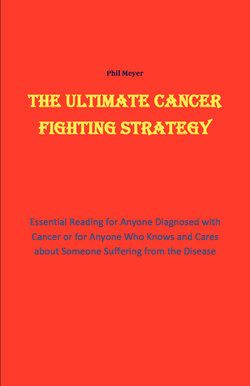Читать книгу The Ultimate Cancer Beating Strategy - Phil Meyer - Страница 7
На сайте Литреса книга снята с продажи.
THE MEDICAL PROFESSION AND PHARMACEUTICAL INDUSTRY
ОглавлениеI am not one of those who believe that all medicines are bad. I try to limit my exposure to pills but if I have a headache, I take an aspirin. If I should ever be badly injured in an accident – bring on the antibiotics, pain killers, anaesthetics, fluid replacement etc. I greatly appreciate all the advances in medicine that have improved so many lives in our time.
Some of the modalities revealed in the book may contradict accepted medical convention. It is not my intention to cast aspersions on the medical profession or the pharmaceutical industry (I do not have the knowledge or training to do this). I will simply urge you to approach these two bodies with an understanding of how they operate and to recognise that their specific objectives can create problems for us when we are attempting to heal.
The pharmaceutical industry is a collection of businesses whose primary objective is to generate income. There is nothing wrong with this. Shareholders expect profits and dividends. When our objective is to achieve healing however, a strictly commercial enterprise may not always be our best ally. Let me give an example: Drug Company X develops a pill (prep BP) to treat high blood pressure. Prep BP is patented, undergoes all of the research and tests and is approved by appropriate health authorities around the world. It is advertised, introduced to medical practitioners and hits the market. The treatment is a great success because, despite its high price, it controls the condition effectively in patients. Like most medicines it has side effects but these can be controlled with other medications which the company produces. Note that prep BP does not cure high blood pressure, it merely controls it. If you suffer from high blood pressure and your doctor prescribes prep BP, you will potentially be taking it and the side effect pills for the rest of your life. You have become a small gold mine for the drug company. If millions like you move to the medication, the company has created a successful money spinner.
Had Company X developed a one off treatment which cures blood pressure for life, such a treatment would be seen as less successful commercially. It would potentially eliminate a huge source of ongoing revenue (high blood pressure in many people). If you or I discovered a cheap, plentiful foodstuff which reduces blood pressure and which we could include into our weekly shopping, this would also be seen as a bad thing by the company. If news of the cheap, safe treatment got out, it would threaten their sales of prep BP. These scenarios demonstrate how our needs and those of the pharmaceutical industry do not always align. We are seeking a cure whereas they need to maximise profits.
Your doctor wants exactly what you and I want. He wants a cure. If he knows of a cure for your ailment then he will prescribe it – no question. He wants you to be well and the next time he sees you he wants it to be for some other condition. The problem is that practitioners depend upon drug companies for efficacious drugs and the primary creators of medicines are the drug companies. Drug companies will spend more to develop a profitable medication than one which they believe may damage revenues. They are only going to spend the big money on profitable drugs for which they own the patents. These patented drugs are touted on electronic and print media and are therefore continuously on our radar. We don’t hear about remedies and products which cannot be patented because the pharmaceutical industry has no commercial interest in promoting them – even if they are effective and cheap.
We need to be cognisant of these realities when planning a healing regime.
